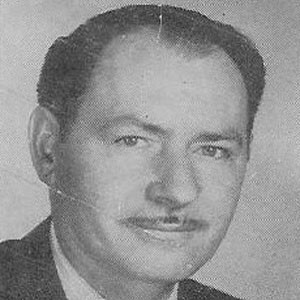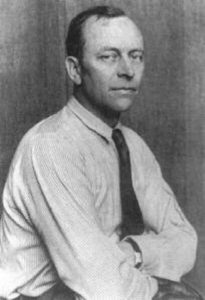by James Scott Bell
@jamesscottbell
Heard from a writer the other day who is frustrated that his two novels are sitting somewhere near the bottom of the Sea of Amazon, with nary a fish swimming by. He wondered if he should even bother writing another.
You know what I told him? Be thankful you’re not trying to break through back in 1934!
Yes, the Great Depression and the era of the pulps. You think you’ve got it hard? How about all those writers wearing out their fingers on manual typewriters, hoping to sell a story for a penny a word? How about the ones who pulled their life savings so they could move to New York for as long as the money lasted and make the rounds of the publishing offices?
Let me introduce you to one of them. His name was Frank Gruber. He was a successful pulp writer, then came out to Hollywood to write for the studios. In the 1950s he hit it big as a TV writer for Westerns. In1967 Gruber published The Pulp Jungle, a memoir of his time trying to break into that market. He moved to New York in July of 1934 with a plan to get published within six months.
My physical assets consisted of one portable Remington typewriter and my wardrobe which, aside from what I was wearing, fit very comfortably into one medium size suitcase. I had sixty dollars in cash, but paid out ten dollars and fifty cents of it for a week’s rent in advance at the Forty-fourth Street Hotel. I squandered another ten dollars over the long weekend, so that on Tuesday morning, when I went out to size up the pulp jungle I had approximately forty dollars.
I had one thing else … the will to succeed.
Because money was tight, Gruber ate a lot of “tomato soup” at the Automat (these were popular in the city, like cafeterias, where you put money in a slot to open a window that held a sandwich or whatever). Hot water for tea was free. So what a lot of people did back then was get a bowl for soup, fill it with hot water, pick up some cracker packs (free), sit down at a table and pour half a bottle of ketchup into the water. Voila! Tomato soup. There were days when this is all Gruber ate.
During his first five months Gruber completed forty stories.
All were rejected.
It was desperation time. Then Gruber got a call from an editor who liked him, but hadn’t bought his detective fiction. He asked Gruber to try a Western. So he wrote two stories and submitted them. Then he got a call from an editor he’d pestered, who knew Gruber was a fast writer. The editor said they needed an adventure story the next day to fill out the magazine. Could he do 5500 words overnight? Of course, Gruber said, without any idea of character or plot.
Twelve hours later, at eight in the morning on a Saturday (when the story was due) he had the 5500 words, but no time for corrections. He took the pages to the offices himself.
Then didn’t hear anything.
He went back on Tuesday to see if they had rejected it. The editor said, “Oh, sorry, we forgot to call you. We pay on Friday. Can you give me another story for next month?”
Then the two Westerns he’d submitted earlier sold for a grand total of $34.
He was in!
But this was just the beginning. Even a successful pulp writer (who was writing for a living) was usually just a step or two ahead of the landlord. They had to keep producing, keep selling.
I poured it on in 1940, producing more than eight hundred thousand words. The more I wrote, the more I had to write. I was making commitments all over town and I had to deliver.
This was a common theme among the pulpsters. Gruber tells about a writer named George Bruce who used to throw parties in his small Brooklyn apartment. One night the place was jammed with thirty-plus people. At ten o’clock Bruce announced he had a 12,000 word story due the following morning. He went to a corner where his typewriter was and pounded it for four hours, ignoring the party swirling around him. At two o’clock in the morning he announced he was finished and poured himself a glass of gin.
Gruber also got to know perhaps the most prolific author of all time. His name was Frederick Faust, but you know him by his most famous pen name, Max Brand. When Gruber met him they were in Hollywood working at Warner Bros. Studios. Faust had, by that time, written and published approximately forty-five million words.
When Gruber asked him how on earth he did it, Faust asked Gruber if he could write fourteen pages in one day. Gruber said he’d certainly done so (fourteen pages is about 4,000 words), but had also gone two or three weeks without writing a line.
That was the secret, Faust said. He wrote fourteen pages a day, every day, “come rain or shine, come mood or no.”
That works out to one and a half million words a year.
The really remarkable thing about Fred Faust’s output was that he was the “biggest drinker” Gruber ever met. Faust would put away a thermos of whiskey during his morning writing hours. His lunch would be washed down by several more drinks. “When he went home at five-thirty,” Gruber writes, “he had a light supper and then settled down to his serious drinking.”
Faust was one of those extremely rare individuals who could drink like that every night and still operate in the morning. I do not recommend this method.
I do, however, recommend Faust’s seriousness about a quota. I’m a piker compared to guys like Faust and Erle Stanley Gardner. I aim for 6,000 words a week! But I can tell you my yearly output for the last 15 years. I keep track on a spreadsheet. This is the most important writing advice I know. [My best year, by the way, was 2010 – 347,768 words.]
So here’s my message for you if you’re tempted to pull a woe-is-me:
- Your pulp forbears would shake their heads at how good you’ve got it. You can publish yourself and to a virtually unlimited market! Without cost! They would have thought that possibility was science fiction back in ’34.
- If you don’t write to a quota, they’d have no sympathy for you.
- If you don’t pay at least some attention to the market, they’d think you were daft.
- If you don’t try to get better at your craft, they’d tell you you’d be better off as a plumber, and the sooner the better.
- If you want to make it, they’d tell you to keep working, because the work never stops.
I wrote a little book some time ago called Self-Publishing Attack! In it are my five “absolutely unbreakable laws” for self-publishing success. While some of the technical items have changed since I published it four years ago, the laws that make up my system remain unalterable.
And the last law is: Repeat over and over the rest of your life.
Are you prepared to do that?
If you are, then somewhere Frank Gruber is smiling.
[NOTE: Gruber would be pleased as pulp to know that his signature series character from the 1930s is still around, in both digital and print. I refer to Oliver Quade, the Human Encyclopedia.]
So what do you think of Frank Gruber’s Depression-era work ethic? Still valid today?


